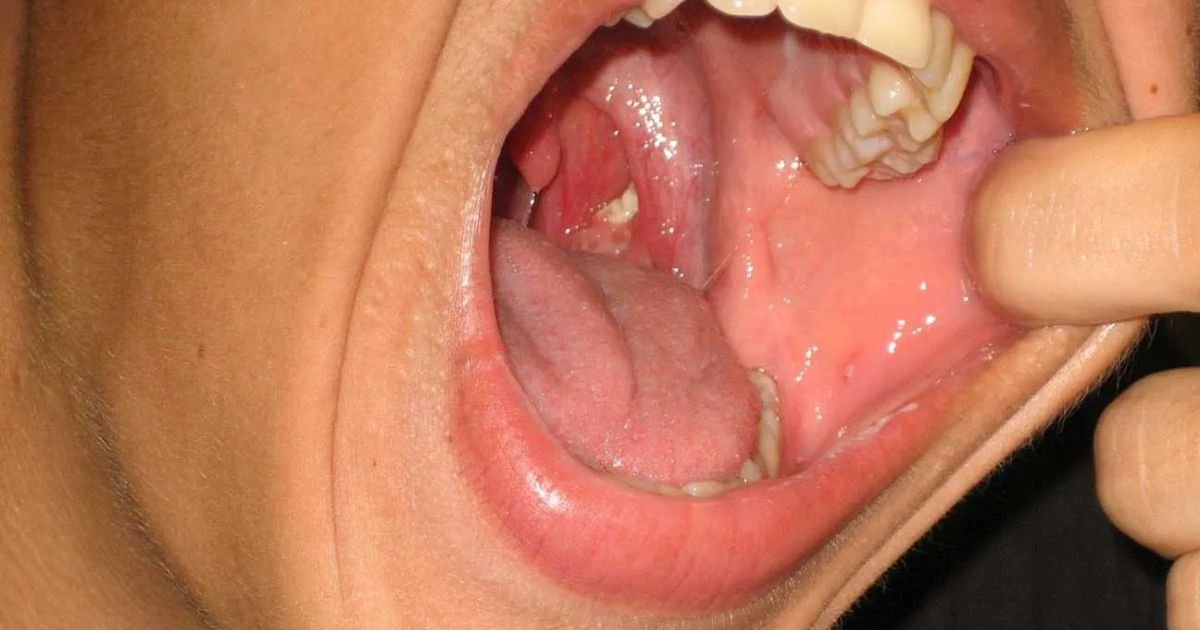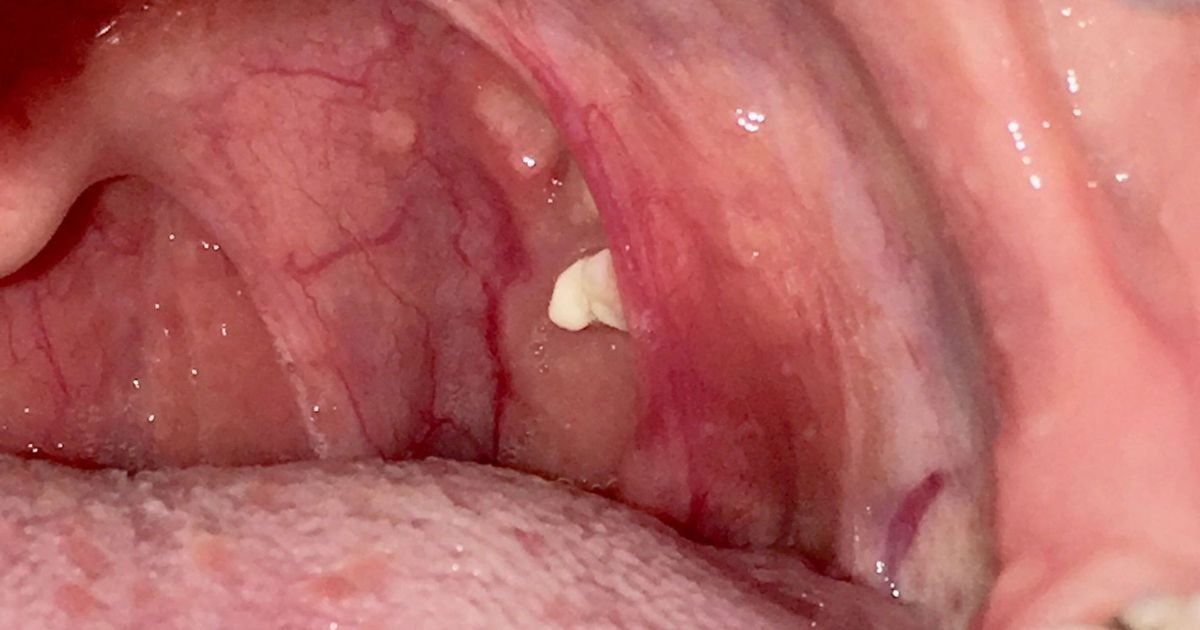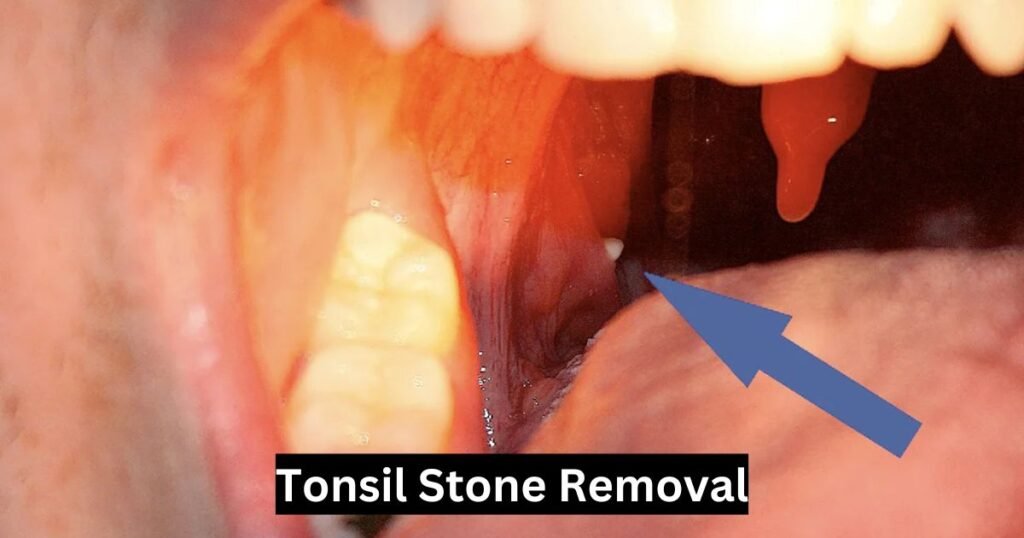Are you struggling with bad breath, an irritating sensation in your throat, or small white or yellowish lumps in your tonsils? You might be dealing with tonsil stones. While not usually harmful, these stones can cause discomfort and persistent bad breath.
Tonsil stones, also known as tonsilloliths, are small, calcified formations that develop in the crevices of your tonsils due to the accumulation of debris such as food particles, bacteria, and mucus. If left untreated, they can lead to bad breath and throat irritation.
In this guide, we’ll dive deep into what tonsil stones are, why they form, and how you can effectively remove and prevent them. Whether you prefer natural remedies or medical treatments, this article covers everything you need to know about getting rid of tonsil stones for good.
What Are Tonsil Stones and Why Do They Form?
Tonsil stones are small, hardened deposits that form in the tonsillar crypts. They vary in size and composition but often consist of food particles, dead cells, and bacteria. These stones can cause discomfort, a metallic taste, difficulty swallowing, and persistent bad breath.
Common Causes of Tonsil Stones
- Poor oral hygiene
- Chronic tonsillitis or inflammation
- Large tonsillar crypts (pockets in the tonsils)
- Excess mucus production
- Bacterial infections
- Post-nasal drip
- Smoking or excessive alcohol consumption
Understanding the cause of tonsil stones is the first step in effectively removing and preventing them.

How to Remove Tonsil Stones at Home
If you have small tonsil stones, you may be able to remove them at home with simple techniques. Here are some of the most effective methods:
1. Gargling with Salt Water
Gargling with warm salt water helps loosen tonsil stones and reduce bacterial buildup in your mouth.
Steps:
- Mix a teaspoon of salt into a glass of warm water.
- Gargle for 30 seconds, focusing on the back of your throat.
- Repeat twice daily for the best results.
2. Using a Cotton Swab
For visible tonsil stones, a cotton swab can be used to gently dislodge them.
Steps:
- Wash your hands thoroughly.
- Dampen a cotton swab with warm water.
- Gently press against the tonsil stone until it pops out.
- Gargle with salt water afterward.
3. Coughing or Flexing Your Throat Muscles
Sometimes, a strong cough can help dislodge smaller tonsil stones naturally.
4. Water Flosser (Oral Irrigator)
A water flosser can effectively flush out tonsil stones without direct contact.
Steps:
- Set the flosser to the lowest setting.
- Aim the nozzle at the tonsil crypts.
- Spray gently to remove trapped debris.
5. Apple Cider Vinegar Rinse
Apple cider vinegar has antimicrobial properties that help break down tonsil stones.
Steps:
- Mix one tablespoon of apple cider vinegar with warm water.
- Gargle for 30 seconds.
- Repeat once or twice daily.
6. Using Hydrogen Peroxide Gargle
Hydrogen peroxide helps kill bacteria and loosen debris from your tonsils.
Steps:
- Mix equal parts of hydrogen peroxide and water.
- Gargle for 30 seconds.
- Spit it out and rinse with plain water.
7. Eating Crunchy Foods
Certain foods, like carrots and apples, help remove tonsil stones naturally by scraping them off while chewing.
Medical Treatments for Persistent Tonsil Stones
If home remedies don’t work or if tonsil stones keep recurring, medical treatments may be necessary.
1. Antibiotics
Doctors may prescribe antibiotics to reduce bacterial buildup, but this is only a temporary solution.
2. Laser Cryptolysis
A laser treatment that smooths the tonsil surfaces, reducing the crevices where tonsil stones form.
3. Tonsillectomy (Surgical Removal of Tonsils)
For chronic tonsil stones or severe tonsillitis, removing the tonsils completely may be the best solution.
4. Manual Removal by a Doctor
For deep or stubborn tonsil stones, a doctor can remove them safely using specialized tools.
Preventing Tonsil Stones for Good
The best way to deal with tonsil stones is to prevent them from forming in the first place. Here are some effective prevention tips:
1. Maintain Good Oral Hygiene
- Brush your teeth at least twice a day.
- Use an antibacterial mouthwash.
- Floss daily to remove food particles.
2. Stay Hydrated
Drinking plenty of water helps wash away food particles and bacteria before they can form stones.
3. Avoid Dairy Products Before Bed
Dairy increases mucus production, which can contribute to tonsil stone formation.
4. Use a Tongue Scraper
A tongue scraper helps remove bacteria and food debris from your tongue, reducing bad breath and tonsil stone risk.
5. Treat Post-Nasal Drip
If you suffer from post-nasal drip, use a saline spray or antihistamines to keep mucus buildup under control.
6. Avoid Smoking and Alcohol
Both smoking and alcohol contribute to dryness in the mouth, which can lead to tonsil stone formation.
7. Reduce Sugar Intake
Sugar feeds bacteria in your mouth, leading to bacterial buildup and bad breath.

(FAQs)
1. Are Tonsil Stones Harmful?
Tonsil stones are generally harmless but can cause bad breath, discomfort, and sore throat. Large stones may require medical removal.
2. How Do I Know If I Have Tonsil Stones?
Symptoms include persistent bad breath, a sore throat, difficulty swallowing, and visible white or yellow lumps in the tonsils.
3. Can Tonsil Stones Be Prevented Completely?
While not always preventable, maintaining good oral hygiene and hydration significantly reduces the risk.
4. Do Tonsil Stones Go Away on Their Own?
Small tonsil stones may dislodge on their own through coughing, swallowing, or regular oral care.
5. Can Tonsil Stones Cause Bad Breath?
Yes, tonsil stones trap bacteria, which leads to foul-smelling breath. Removing them improves oral freshness.
See Also: gossiips.com
Conclusion
Tonsil stones can be annoying, but they are manageable with the right approach. Whether you opt for natural remedies or medical treatments, maintaining good oral hygiene is key to prevention. If tonsil stones persist, consult a doctor to discuss advanced removal options.
Have you ever dealt with tonsil stones? Share your experience in the comments below, and don’t forget to check out our other oral health guides!



